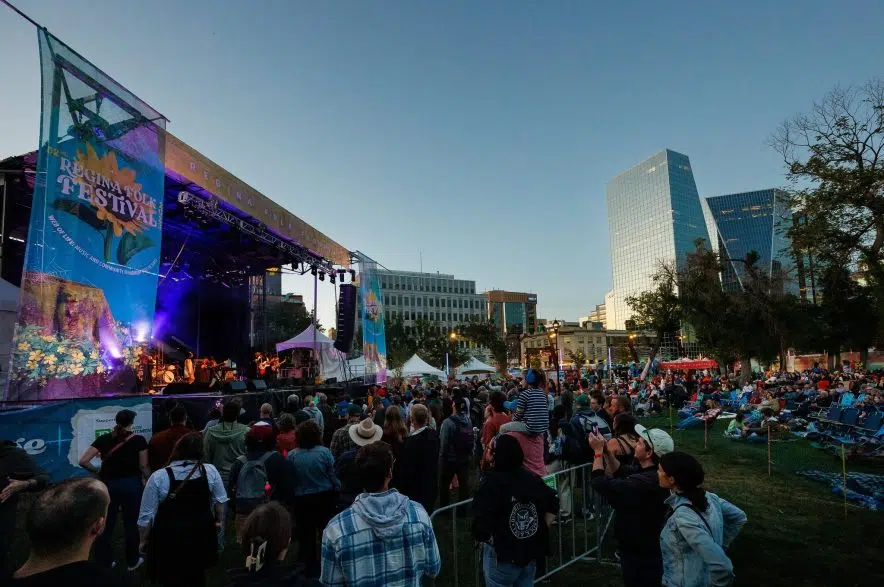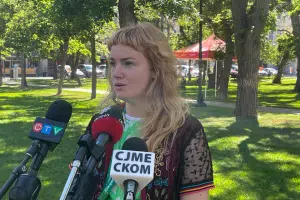Live music, food and good vibes are all key elements of the Regina Folk Festival (RFF), but so is money.
The festival has been struggling to stay afloat since the COVID-19 pandemic brought about new financial issues.
Amber Goodwyn, the RFF’s artistic director, said attendance numbers from the weekend were up from 2022. Festival organizers were also close to meeting their ticket sales goal.
“The feeling in the park this year was really amazing: People hanging out with their friends and family, taking in good music, eating some great food and just celebrating being together as a community in the park,” she said.
Although attendance numbers were up, Goodwyn said there’s more work to be done to keep the festival running.
“We’re going to be reviewing the festival from the last two years and strategically planning for the future to see what is sustainable for us in this post-pandemic reality. It’s a completely new reality for us financially, and that’s why it’s important for us to do a deep review before we plan any more festivals,” said Goodwyn.
In June, the RFF announced it was struggling financially and called for the community to help. Goodwyn said the community showed up.
“Our volunteer numbers went up, people started donating (and) sponsors and partners really helped try to boost the signal as much as they can to get the word out about the festival this summer. So we really felt that. We deeply appreciated that support,” she said.
The RFF is trying to raise $50,000 to help with rising production costs and artist fees.
“We’re still working towards that goal; we haven’t met that goal yet. So this fall we’re going to be focusing on fundraising for sure,” said Goodwyn.
The money raised also helps keep parts of the festival free.
“We’re the only remaining western folk music festival that offers free daytime programming, and we want to retain that. We feel like it’s a really important element of the festival. We want to make sure that music, art and culture is accessible to as many people as possible in the city,” she said.
To make the paid aspects of the festival more accessible, in-person ticket sales offered tickets at a lower cost.
Goodwyn said people appreciated that and it was the RFF’s most successful sales tactic.
The RFF isn’t going anywhere yet, but definitely has a bumpy road ahead.
“We’re feeling good. We’re feeling hopeful and cautiously optimistic as we move into the future here,” said Goodwyn.












